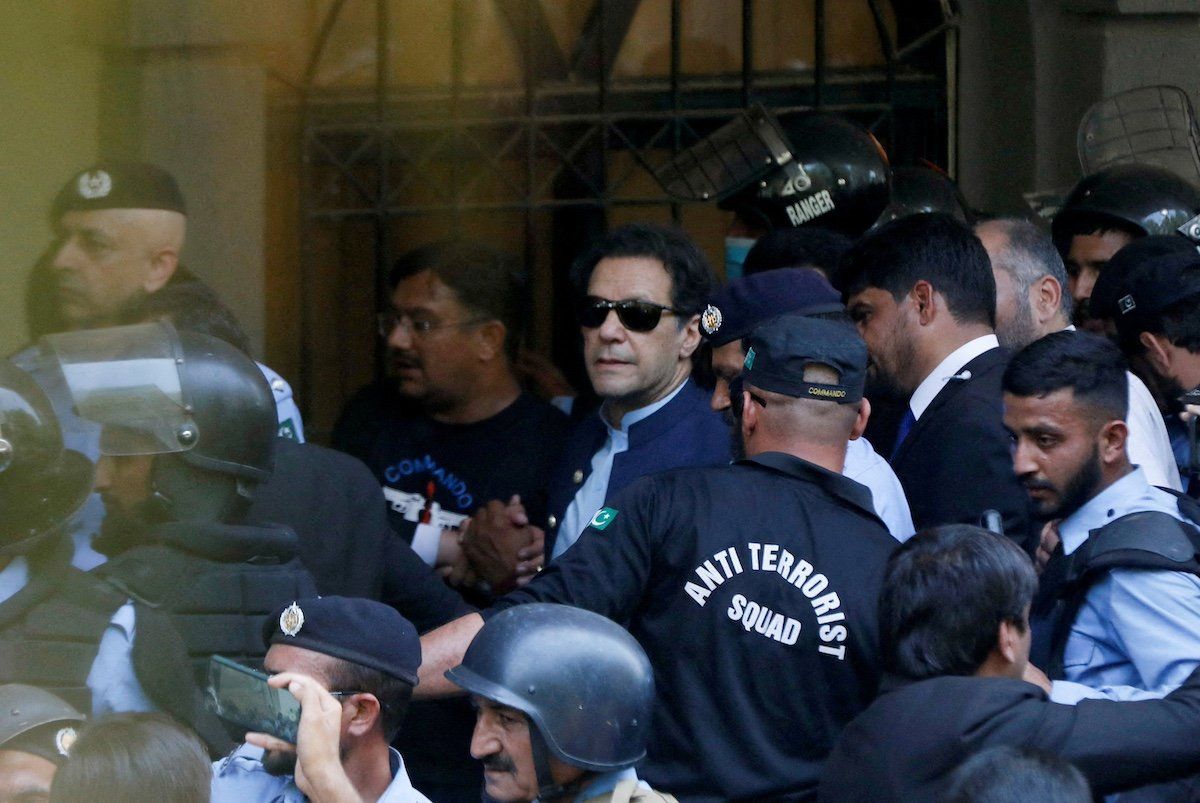Pakistan is set to hold national elections on Feb. 8, and former Prime Minister Imran Khan is not letting a few restrictions keep him from campaigning. His party is not allowed to hold public rallies, and Khan himself is in prison, serving three years on graft charges he says were politically motivated.
Yet, Khan managed to make a splash on Sunday by broadcasting an AI-generated four-minute speech at a virtual online rally – a first for Pakistan. He told supporters that “Our people are being kidnapped” and urged them to vote in large numbers.
The broadcast of the AI-generated image of Khan delivering a speech he wrote in prison, which AI then made into an audio clip synched to the video, was reportedly disrupted several times by internet outages. It remains unclear whether the interruptions were a result of sabotage or simply a product of Pakistan’s spotty internet service.
Beyond its effects on Pakistan’s troubled politics, the speech is very much worth watching as a preview of political things to come around the world.